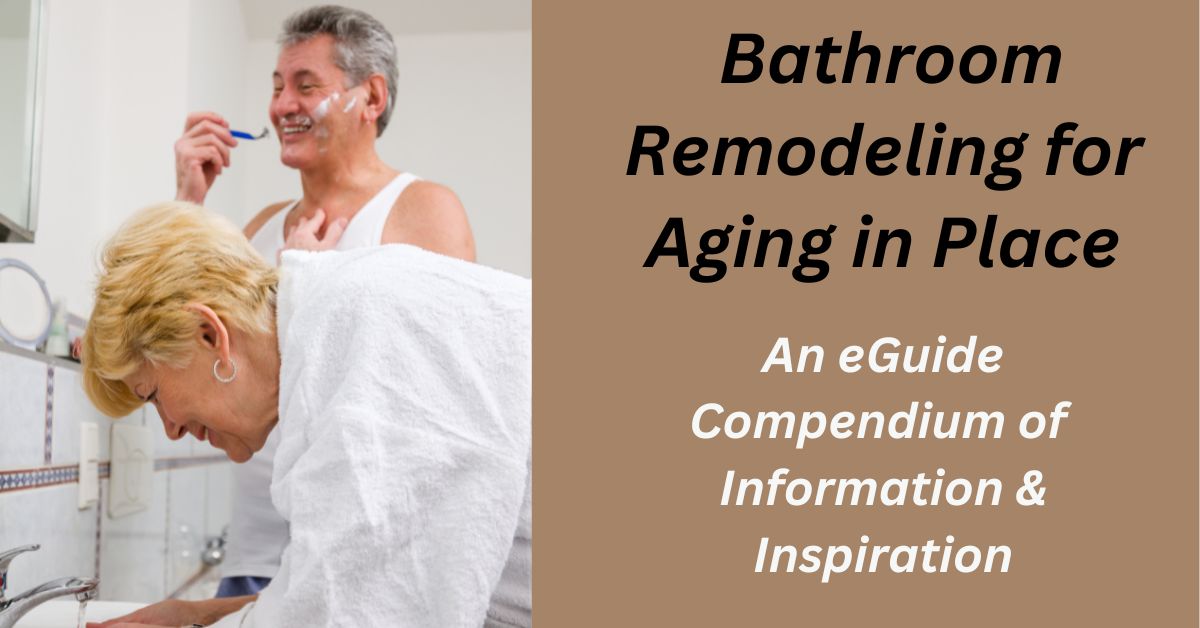Table of Contents
What to Ask a Realtor When Selling Your Home
Below are questions to ask a realtor when selling your home. Some of them are key. And, just as important, here too are the answers you want to hear in your listing agent interview.
The right agent will get you the best price possible and make for a smooth and trouble-free sales process. But with the wrong agent, you will leave money on the table and suffer a great deal of stress.
You know that you need to interview candidates for the job. So it’s important to know the right questions to ask. And you also need to know how to evaluate the answers.
From the time you bought your home in the first place, you will remember that the purchase process was pretty complex. It’s the same with the selling process, only more so.
Therefore, you need a competent advocate-navigator to represent your interests and steer you through the myriad details of the transaction.
Pro-tip: Create a short list of 5 agents to interview
Before you start the interview process, put together a list of no more than 5 candidates to talk with. And, since all real estate is local, create a list of agents who are known to be experienced in selling homes in your neighborhood.
Do this in three ways:
- Go to the real estate agents tab on Realtor.com and do a search by City or zip.
- Talk with neighbors to see if they have recommendations.
- Simply drive the neighborhood and note down the names of the agents and brokerages that appear on the For Sale signs. You will likely find that some names appear more often than others. Put these on your list to interview.
That done, here are the questions to ask a realtor when selling a home and the types of answers you want to hear.
Your questions will show the agent that you are a serious and quite knowledgeable potential client who deserves respect. And the cumulative answers you get will put you in a good position to know if this is the agent you want to work with.
There is a lot to unpack. So take notes during your interview.
The Questions
1: Are you a Realtor® or just a regular agent?
A Realtor® is a member of the National Association of Realtors and is required not only to have a real estate license issued by the state but must also adhere to high ethical standards.
That an agent is also a Realtor® demonstrates a commitment to the profession. So you want a Realtor® to represent you.
2: How long have you had your license and are you full-time?
You want to find someone with at least 3 to 4 years of active experience. Although it must be said that a lot of experience is not on its own conclusive of high ability. We frequently see very young agents outperform their seniors.
Additionally, you should prefer a full-timer over a part-timer. The full-timer is more likely to be readily available to you to answer your questions. But if you really like the part-timer, make sure he or she has the backing of a team in the office.
3: What professional designations or certifications do you hold?
You want an agent who is both knowledgeable and so committed to the profession that s/he has earned additional credentials.
Here is some cred to look for:
- CRS (Certified Residential Specialist)
- ABR® (Accredited Buyer Representative)
- SRS (Accredited Seller Representative)
- SRES® (Seniors Real Estate Specialist)
Ask the agent to explain the credential to you.
4: Are you a real estate agent or a real estate broker?
A broker is a real estate professional with greater education and experience than an agent. Most states require a four-year degree to qualify as a broker. Regular agents (and agents who also happen to be brokers) are hired by and responsible to a supervisory real estate broker.
This question is not a deal breaker. But if you like the agent, ask about his or her brokerage and the support team behind the agent.
5: What is your real estate license number and is it in good standing?
You want to be able to check the status of your agent’s license on sites like ARELLO.
Also, find your way to your own state’s real estate licensing board’s website. You can also check a licensee’s status there. It’s part of your due diligence process.
6: Have you ever had a complaint against your license?
This question is pretty self-explanatory. And you want a ‘No’ answer or at least a convincing explanation that you can check out. And remember that not all consumer complaints are justified.
7: Are you a member of your local board of realtors?
You want an affirmative answer to this question because it is critical to your agent being able to list your property on the local MLS (Multiple Listing Service).
8: Do you represent mostly sellers or buyers?
Some agents are exclusively buyer or seller specialists. But many will work as both. Ideally, you will want a selling agent specialist. But don’t rule out a generalist agent because experience in both sides of the real estate transaction has its own value.
9: Will you represent both me and the buyer?
This is one of the key questions to ask a realtor when selling a home. It is important and we get a bit long here.
You want a definite ‘NO’ answer to this question. An agent who represents both seller and buyer in the same transaction is engaged in what is called a “dual agency.”
In some states, dual agency is actually illegal. And for good reason. But In other (most) states, it is legal although it must always be disclosed. However, when it is disclosed, it is often only in the small print of the listing agreement.
The problem is that dual agency gives rise to an obvious conflict of interest. After all, the only reason for an agent to represent both sides is to earn a double commission. So a dual agent will be all out to close the deal in order to “double end” it.
But this is usually to the detriment of the seller because the fastest way to close a deal is at a low price. After all, having your agent negotiate on behalf of both you and the buyer is an absurdity.
In our opinion, dual agency, even if disclosed, is simply unethical.
10: How do you deal with a potential dual agency?
But, in the real world, we need to deal with the possibility of a dual agency arising.
Almost inevitably, a potential buyer will drive by the For Sale sign on your property and call your agent. This is great and your agent should definitely show the buyer your property.
However, if the buyer wants to go further and make an offer on your property, your agent should refer the buyer to a buyer’s agent from a different real estate brokerage than the seller’s agent.
It needs to be a different brokerage because it is still technically a dual agency even if different agents in the same brokerage represent the buyer and seller separately.
This shows good faith to the buyer because your agent can explain that the buyer is best represented by his or her own agent.
Get your agent to commit to this scenario or pass.
11: Do you have your own website? Do you blog on real estate matters?
Most agents do have a website. Check it out to get a sense of whom you may be working with. If they operate a blog, so much the better. It demonstrates commitment and expertise.
Pay attention to the comments. You may find client testimonials there.
And while you are online, Google the agent’s name and look for reviews on sites like Zillow.
12: Can you please give me the names of 3 clients you have represented recently?
Call these people and ask about their experience with this agent. Would you work with him/her again?
13: How many homes have you sold in my neighborhood and my price range in the past year?
We touched on this earlier. You want an agent who knows your neighborhood market well. Your agent should understand all the selling points of the area, its price ranges, and how best to market your home. The more homes he/she has sold in your price range, the better.
This is another one of the key questions to ask a realtor when selling a home.
14: How many listings do you have and how many are in my neighborhood?
A busy agent is an indicator that they are good at what they do. But beware of taking on someone so busy that they don’t have time to do the job well. On the other hand, an agent with time and availability may be an indicator of a lack of ability.
When in doubt, go with the busy agent. Remember the old saying: “If you want something done fast, give it to a busy person.”
And don’t worry about competition from that agent’s listings. Every property is different and each has its own appeal.
The main point here is that, if your prospective agent has a bunch of listings in your neighborhood, you can be sure s/he is very familiar with the local market. And this is in your favor.
15: Do you work solo or do you have a team?
Many busy agents have a team and will delegate. This is not a negative, but you need to be sure that your line of communication is direct with the agent you contacted. You don’t want to be talking to different people. This is just asking for things to fall through the cracks.
But ask the agent how s/he and the office handle the various parts of the selling process. This includes the MLS listing, online and offline advertising, signage, open houses, qualifying buyers, transaction coordination, contract negotiations, title issues, home inspections, etc.
16: How do we communicate with each other going forward?
A great answer to this question would be: “Well, how do you want to communicate – phone, email, or text?”
You want to know the best time to reach the agent by phone and if you don’t make immediate contact, how long before you expect to get a return call. And you need to know when the agent is not available.
And you also want to know how often you will get progress updates during both the marketing phase and the transaction phase of the sale.
Our recommendation is to use phone and email only. And when you use the phone confirm the substance of your conversation in an email. There’s an old maxim in real estate: “If it isn’t in writing, it doesn’t exist.”
17: What is your commission? Is it negotiable?
Taking the second question first, all real estate commissions are negotiable. So if the agent says the fee is non-negotiable, pass. On the other hand, while an agent may acknowledge that the commission is negotiable, it does not mean that s/he must negotiate. It’s a 2-way street.
The “standard” real estate commission is 5-6% of the final sale price, and it is usually split between the buyer’s agent and the seller’s agent.
By all means, ask your agent for a discounted rate but get an assurance that the level of service will not suffer.
And remember too, if a buyer’s agent sees in the MLS that the commission offered on your home is discounted below what is customary for your area, s/he may be inclined to give preference to other homes offering higher commission splits when showing them to his or her buyers.
Your best shot at a discounted rate is if your home is high-value. If it is, point it out to the agent.
18: How long will our listing agreement last?
This is another one of the key questions to ask a realtor when selling a home.
Typically, a listing agreement is set to last for 3 plus months. And this is generally considered to be acceptable. But the most important provision that a seller should insist upon is the right to cancel after, say, 8 weeks. This is a long enough period and fair enough to both parties for an evaluation of agent performance.
An unscrupulous agent will try to lock you into a long (6 months or more) listing agreement on the assurance that s/he will get you top dollar at an unrealistic, inflated list price. And all along the agent knows that it will not sell for that price.
This is just to guarantee that they will get their commission. Because they also know that long before the listing expires, you will have become so frustrated that you will agree to a much lower selling price.
The problem is that when a home sits on the market unsold for a long time, the listing becomes “stale” and buyers lose interest in it. And eventually, you are forced to sell at a lower price than it would have sold for, had it been priced right in the first place.
So, if the agent won’t agree to a cancellation clause – pass!
And this brings us to a related key question.
19: What is your average sale price to original list price ratio?
This ratio is a gauge of the skill of the agent in judging the market and/or whether the agent may be intentionally overpromising on the price in order to clinch the listing agreement.
If a property is listed at $100,000 and it sells for $95,000, the sale price to list price is 95%. This ratio is to some degree affected by market changes, but any ratio lower than 90% is a red flag. An average ratio above 95% is an indicator of solid agent ability.
20: What about the CMA (Comparative Market Analysis)?
Important note: Make sure that your prospective agent generates a CMA derived from data in the local MLS. An agent’s CMA based on Zillow or some other online source is worthless to you and you don’t want to waste your time on that agent.
Pro tip: Ask the agent to include the original list price in the CMA tabulation. The original list price is the price the property was listed for when it was first put on the MLS. Tell the agent that you think it is an important market indicator. But the other reason you want this data is to verify the ratio you asked for in Question 19.
21: What is your recommended list price?
Setting the list price, which is your decision, not the agent’s, is part science and part art. And getting the list price right is essential to a successful sale. It sets the negotiating table.
And by “successful sale,” we mean achieving the maximum possible price in the shortest possible time.
If the price is too high, prospective buyers won’t even want to view your home. But, if the price is too low, you will leave money on the table.
So you want to discuss pricing with the agent in detail.
22: What does the CMA tell you about the market?
Discuss the CMA you have received with your prospective agent. You should expect the CMA to contain sold (usually within the past 6 months), active, pending sale, and expired listings that are in your same neighborhood or subdivision.
You should also expect to see DOM (Days on Market) for each of the listings. And you also want to see that they are similar in these most important attributes:
- Square footage
- Number of bedrooms
- Number of bathrooms
- Number of garage spaces
- Condition
- Age
- Lot size
Obviously, not all the listings will be the same but, compared to your home, you should be able to make plus and minus dollar price adjustments to get a close approximation to the right price for your home.
And then some additional factors to consider are:
- Location on street (cul de sacs are a plus)
- Views
- Type and proximity of schools
- Proximity to road noise
- Proximity to shopping
- Proximity to freeway access
23: How do you see these adjustment factors apply to the pricing of my home?
Weighing all this information, and making adjustments accordingly, is how one arrives at a realistic approximate list price.
And then there are the additional factors of the market trajectory (up, down, or steady) and velocity (days on market or DOM).
Probably your prospective agent has a list price in mind even before he sees the property. You can ask him or her what it is, now that s/he has actually seen the property.
And ask how the agent weighed all the factors that we outlined above. You can also challenge the agent on any comps that you think are dubious or suspect, based on your own local knowledge of the neighborhood.
Finally, ask which of the CMA listings belong to the agent. If you see that there is a big discrepancy between the sold prices and the original listing prices, there is reason for suspicion either that the agent may lack experience or that the agent may have set the price artificially high in order to secure the listing. This relates to Questions 13 and 14.
Of course, since you are interviewing several prospective agents, you will be able to compare several different CMAs and several different discussions on price. And all this will give you a highly educated insight into how to price your home for sale.
24: What are my home’s best selling points?
Your prospective agent should be able to tell you this pretty much right away. But s/he may have missed something.
Think back to the time you bought the home in the first place and what sold you on the property. Make sure that this information is included in the agent’s marketing material. And also make mention of improvements or upgrades to the property that you have made that might be overlooked.
25: What is your marketing strategy for my home?
This is yet another one of the key questions to ask a realtor when selling a home.
A well-thought-out marketing plan is essential to a successful sale. And an experienced agent will be able to give a fluent and specific answer to this question.
You should expect to hear a multi-pronged marketing approach, to include:
- The MLS – this is still the most important of all, because it is mainly how buyers’ agents find properties for their clients. Besides, a great deal of MLS information is online at MLS.com, for example.
- Online avenues (including their website)
- Email lists
- Offline avenues
- Virtual staging (if the home is vacant and empty)
- Open houses (Including buyer-broker opens)
- Photographs (the more photos the better)
- Videographs of the home and its neighborhood
- Floor plans
- Showcasing the home’s unique selling points
- In-home marketing flyers (these are typically displayed on the kitchen counter
Ask for examples of the agent’s marketing materials.
26: Do you provide a staging service?
We just mentioned the virtual staging of a vacant and empty home. But how do we put our home’s best foot forward when we are living there?
Staging touches, particularly when added to the kitchen and bathrooms are a must. A good agent will offer a staging service or give great tips as to how to do it yourself.
27: Is there any repair or sprucing up I should do before listing the home?
Be careful here. A home improvement that is made just to facilitate the sale of the home is almost always a money-losing proposition. This is because you will not be able to recover the full cost of the project in the sale price.
On the other hand, you know that your buyer is going to hire a home inspector to check for any problems in the home’s electrical and plumbing systems, etc. And if anything is found, the buyer will either insist the problem is fixed or require a reduction in the price.
And, if the inspector finds nothing of any significance, it will make your home seem more desirable. However, you can always expect the inspector to find “something” because otherwise, it will seem that he hasn’t done his job.
So beat the buyer to it. Hire your own inspector and, rather than spend money on any kind of home improvement project, spend it on taking care of the problems found. You can ask your prospective agent for the name of a home inspector, or you may remember who inspected your home when you first bought it.
Aside from that, spend money on things that are purely cosmetic but will catch the eye. These would include new faucets or new cabinet hardware. And be sure that the exterior landscaping is in good condition to maximize curb appeal.
And, obviously, make sure the home is clean and looks uncluttered.
Related post: Decluttering Tips
Check out the cost vs value report on the Remodeling site. And, in our opinion, of all the projects mentioned here, a new garage door will give you the best bang for your buck, because, aside from the improvement itself, it is relatively inexpensive and significantly increases the curb appeal of the home.
- Related post: Home maintenance
28: How do you screen potential buyers?
The answer you want to hear is something like: “I will only work with cash buyers or buyers who have a preapproval or (at minimum) a prequalification letter from their lender. If they don’t have this I will refer them to a good mortgage loan provider.”
You want to know that the agent is only dealing with potential buyers that are actually able to close on the property. You do not want time wasted with lookie-loo buyers.
29: What will my closing costs be?
This is an important question because the eventual sale price is not all going into your pocket. There are costs such as title, escrow (or attorney), city and county taxes, and of course, your agent’s commission that are going to get deducted to arrive at your net sales proceeds.
30: Why should I work with you rather than your competition?
You can expect a pretty fluent answer to this question but you should ask it anyway. However, you should also throw this curveball question: “In your opinion, who is the best-selling agent out there, aside from you?”
31: Is there anything I should know that I haven’t asked you?
This is a wrap-up question. It puts the agent to the test of his or her own knowledge and also tests how closely s/he was paying attention.
Conclusion on Questions to Ask a Realtor When Selling Your Home
So there you have it. All the questions to ask a realtor when selling a home.
We have called out the most important questions in Questions 9, 13, 18, 20, and 25. But all of these questions and their answers taken together will help you find the right realtor for the sale of your home.





Leave a Reply